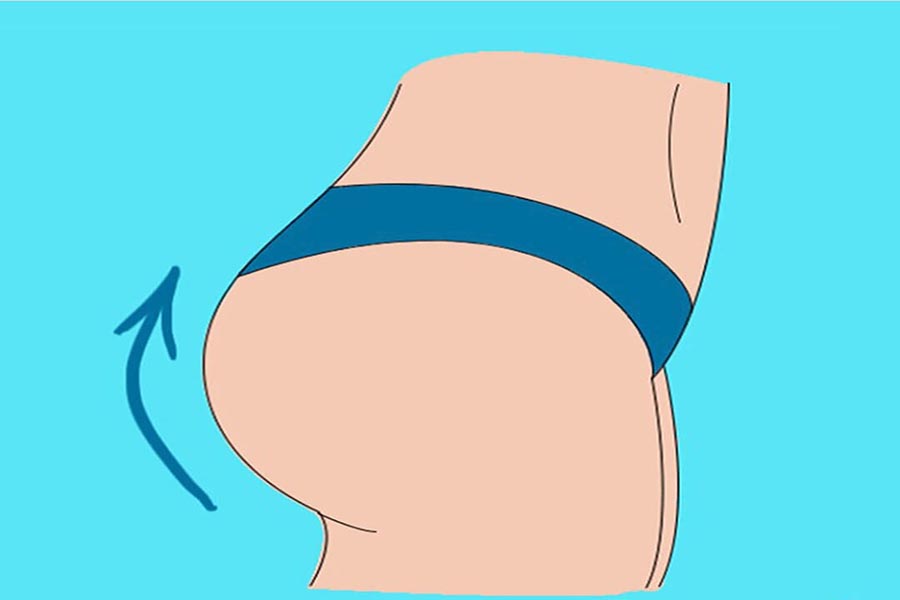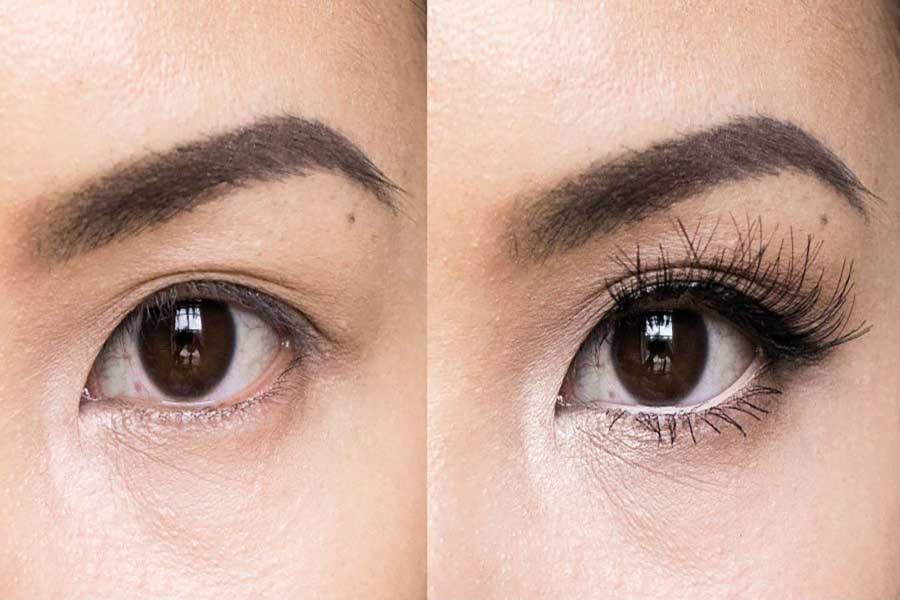
hips-prosthesis
November 27, 2020
Enlarge the eyes
November 27, 2020The desire for beauty and being beautiful has always been a concern of human beings. For some time now, the fever of cosmetic surgeries has been driving many people to medical clinics. The desire for facial beauty has always existed in various forms in human societies. One of the most popular procedures recently is lip prosthesis to increase the volume of the lips and achieve a more prominent and plump appearance. In this article, we will introduce you to the benefits of skin fillers, the side effects of lip prosthesis and 9 important points before having a lip prosthesis.
must read:
Thickening eyelashes with 3 easy home methods
What is a breast prosthesis; Types of prostheses, advantages, disadvantages and necessary care before and after surgery
Benefits of paraffin therapy and how to do it at home
These days, dermal fillers are a common method for lip prosthesis. Its different types can be injected into the lips and around the mouth; But the most common fillers today contain substances similar to “hyaluronic acid”. “Hyaluronic acid” is a natural substance that is also found in the body and helps increase the volume of the lips. These skin fillers are also known as “hyaluronic acid fillers”.
Collagen was once one of the most common skin fillers, but today it is less used for lip prosthesis. New methods are safer and will have more lasting results.
Liposuction and implants are other methods of lip prosthesis. But today, due to different results and higher risk of side effects, less of these two methods are used.
Uses of hyaluronic acid fillers
Hyaluronic acid fillers enhance the beauty of the lips by changing the shape, structure and volume of the lips.
The effect of this method is lasting for about 6 months. More injections are needed at regular intervals to maintain lip volume.
There are “hyaluronic acid” fillers on the market with different brands and prices.
All of these products are injected in the same way and will have the same result. Some of them also contain lidocaine (a type of local anesthetic).
Advantages of hyaluronic acid fillers
Advantages of lip protector fillers
Instagram
@chetormedia
Follow our new page
After injecting gel fillers, these materials help to condition the lip tissue.
Advantages of using “hyaluronic acid” fillers include:
Lip volume control
The amount of injectable material is controllable. Therefore, the doctor controls the volume required for lip prosthesis injection.
Gradual formation of the result
Injections can be performed at different intervals to achieve the desired result.
Painless disappearance of bumps
Any bumps or lumps caused by the wrong movement can be easily removed.
Less bruising
Compared to other skin fillers, this method will leave less bruising and swelling.
More durability
The results of these injections in lip prostheses are usually longer, but not permanent.
Minimal allergic reaction
Due to the close structure of “hyaluronic acid” fillers to the body tissue, there is less allergic reaction to this substance. But if you are allergic to lidocaine, be sure to tell your doctor.
What to expect while doing the job
Injection techniques used in lip prosthesis are easily performed in a doctor’s office. This is an outpatient procedure and usually does not require special rest or care. But fat injections are different. In this method, a small “liposuction” operation must be performed to supply the required fat from other areas of the body.
A small amount of anesthetic is usually applied around the mouth before the injection. Sometimes the doctor completely numbs the lips by anesthetizing the nerve block. This procedure is similar to what is done in dentistry to anesthetize the gums and mouth.
After preparing the injection site, the desired material is injected into the lip with a very narrow needle.
After the injection, ice may be used to control swelling and discomfort at the injection site. But do not put too much pressure on the injection site.
It is best not to use lipstick or other lip products after doing this.
You should usually notice a change in the lips immediately after the injection. After recovery, the abnormal sensation on the lips disappears.
Complications of lip prosthesis
Side effects of “hyaluronic acid” fillers in lip prosthesis are temporary and do not last more than a few days. These side effects include:
Injection site bleeding;
Bruising and swelling;
Redness and pain at the injection site;
And herpes at the injection site or around the lips.
More serious side effects and risks include:
Feeling of pain, long-term swelling or bruising that does not go away for a week to 10 days;
Asymmetry of the lips (part of the lips should be a different size);
Protrusion or roughness on the lips;
Infection;
Intravenous injection that destroys tissue;
Sores, scars or tightening of the lips;
An allergic reaction that causes redness, swelling, or itching around the lips.
Contact your doctor as soon as possible if you experience excessive swelling or fever.
Is a lip prosthesis right for you?
Lip prosthesis is right for you
To answer this question, you must first ask yourself why do you want to change the look of your lips? It is best to never go for this before finding a definite answer to this question.
Also, do not forget that you have to have realistic expectations about the outcome. Prominent lips make the lips appear smoother and thicker. But after leaving the doctor’s office, you will still be the same person.
Your doctor can talk to you about the pros and cons of lip augmentation options. So you will be able to Make the best decision depending on the technique and materials used in this operation.
It is better to be in good health and avoid smoking before having a lip prosthesis. If you have any of the following conditions, you should probably skip this procedure:
Having an active infection such as oral herpes;
Diabetes;
Tuberculosis (or other skin lesions);
Blood coagulation disorder.
If you have had herpes in the past, tell your doctor before having it. Talk to your doctor if you have any specific allergies or allergies to lidocaine. Also tell your doctor if you are taking any medications, including prescription, over-the-counter, or herbal supplements.
Choosing the right doctor
There are several specialists who can perform lip prosthesis, including:
plastic surgeon;
dermatologist;
Facial cosmetic and reconstructive surgeon.
The most important thing in choosing a doctor is the doctor’s expertise and experience in performing this operation. You need to trust your doctor. Do not see any doctor. Having a lip prosthesis carries a lot of risks, especially if the person doing the injection is not experienced enough.
When you decide to do this, ask about your doctor’s educational background. How many injections has this doctor given so far? Has he obtained a valid document related to this practice? Is he a member of the Association of Specialists in his field?
In addition, look at pre- and post-operative photographs of each client’s other clients. Are you satisfied with the result? If not here’s a new product just for you!
9 things you need to know before doing a lip prosthesis
Lip prosthesis in celebrities
Thanks to celebrities like Kylie Jenner, the number of people seeking to highlight their lips with temporary fillers has increased dramatically.
Although the result of this method is not permanent, it can not be taken lightly. Before deciding to do this, there are many things to consider.
We interviewed Dr. Esho, a lip surgeon and award-winning cosmetic surgeon, to learn more about lip prosthesis:
1. What are lip fillers made of?
Most people who do this use collagen or “hyaluronic acid” to increase the volume and size of the lips. Collagen not only soothes the lips, but “hyaluronic acid” fillers not only help to increase the volume of the lips, but also retain the water in the lips for a natural look.
۲. How much filler is needed?
An important point that many people overlook in lip prosthesis is that achieving prominent lips does not necessarily happen overnight. If you have very thin lips and you want to achieve bigger and more natural lips, this requires several sessions of treatment. So it will cost more.
The key is to make the layers, which I personally do with the “microdroplet” injection technique. This method allows me to create a new lip for the client to reach the desired shape and size at the right time.
3. Is this painful?
This varies depending on who is doing it. Personally, I prefer to use dental anesthesia so that the patient does not feel pain. But many people choose anesthetic gels that may cause some discomfort to the patient.
4. How long does a lip prosthesis last?
The durability of a lip prosthesis depends on the materials used and the age of the patient. On average, most people need a re-injection every 4 or 6 months to maintain the desired size.
5. Does a lip prosthesis feel different from a natural lip?
If done correctly, lip fillers should not feel any different from natural lips.
6. Will the result of the work be determined quickly?
Right after the injection, the lips become slightly swollen. I advise my patients to put ice on their lips first to prevent bruising of the skin. After about 24 hours, the swelling disappears and the final result is determined.
7. What are the consequences if this is not done properly?
This will usually vary depending on the materials used for the lip prosthesis. Most physicians use “hyaluronic acid” fillers, which last longer than collagen fillers.
The probability of allergy to substances containing collagen is between one and three percent. But “hyaluronic acid” fillers rarely cause an allergic reaction in the patient.
8. If we do not like the appearance of the lips, is it possible to empty the fillers?
One of the advantages of “hyaluronic acid” over collagen fillers is that it can be eliminated even before it is naturally eliminated by an enzyme called hyaluronidase. So if a problem arises, it can be solved quickly.
9. How to find a reliable doctor?
The key is to research. Finding someone with the necessary skills is very important and necessary. Check your doctor’s qualifications. On the recommendation of the British Ministry of Health, those qualified to do so are surgeons, doctors, dentists or nurses.
Read related websites about it. These sites provide a good source for information about previous visitors.
Don’t forget to always ask your questions from reliable sources.







